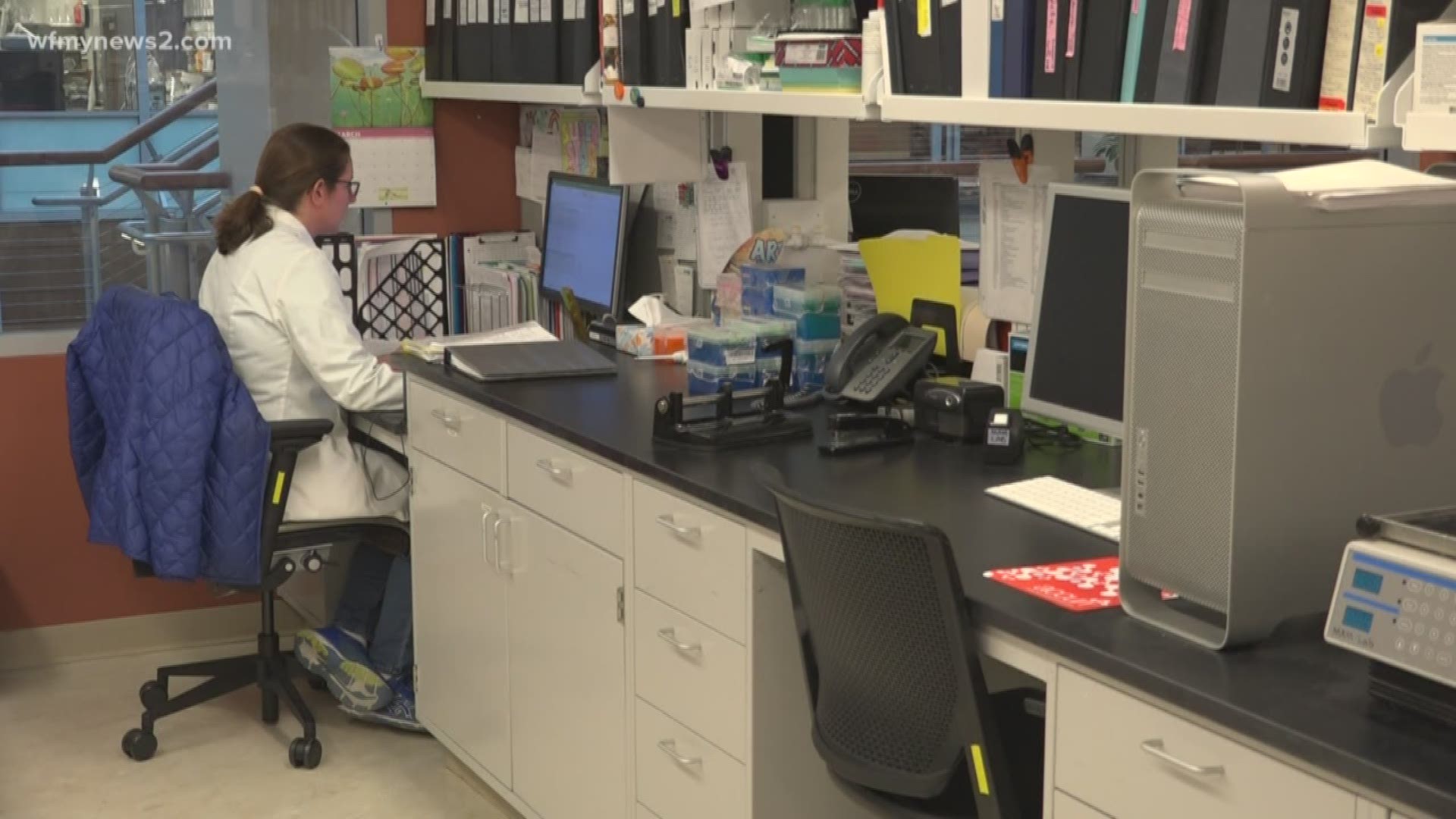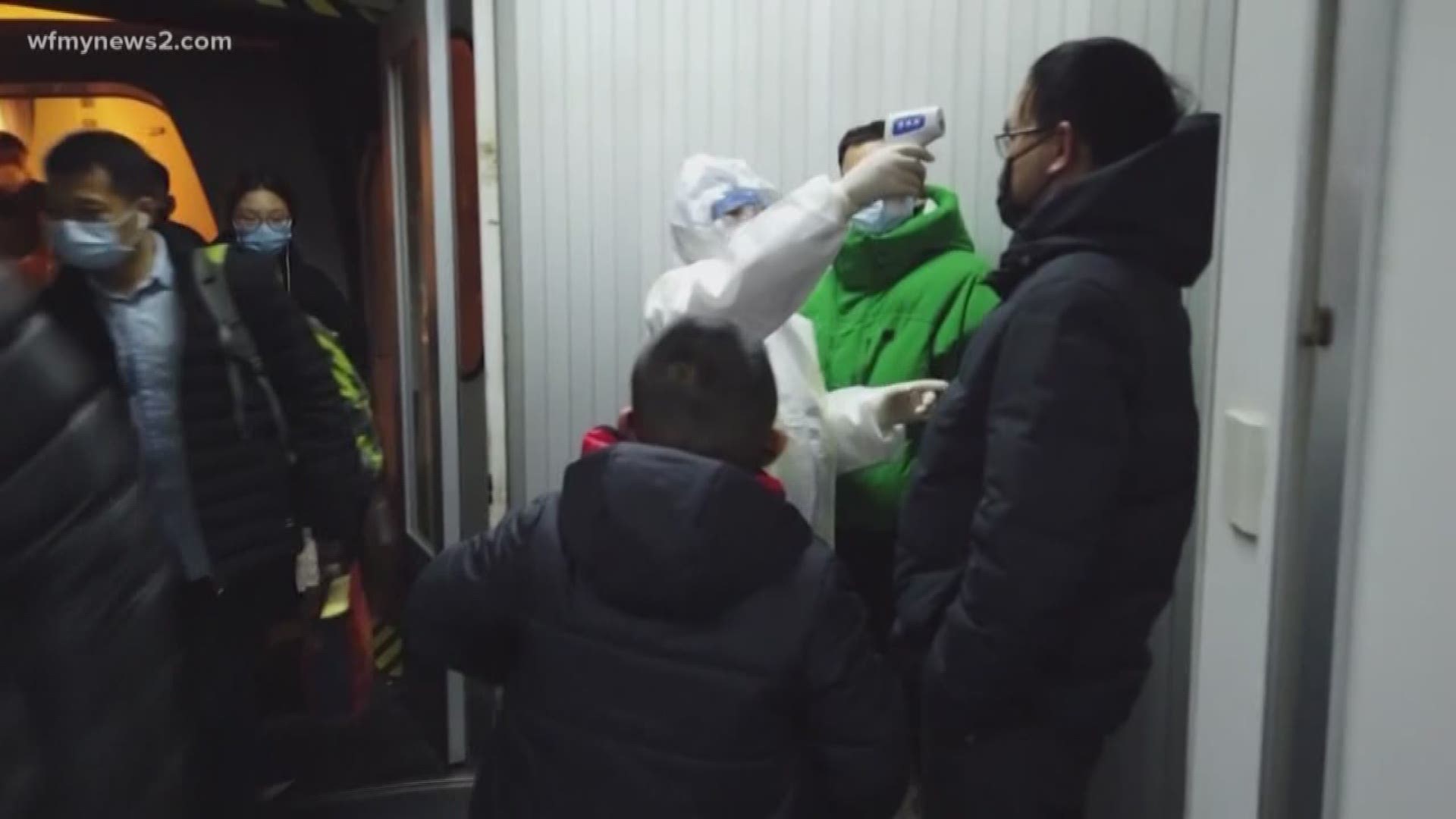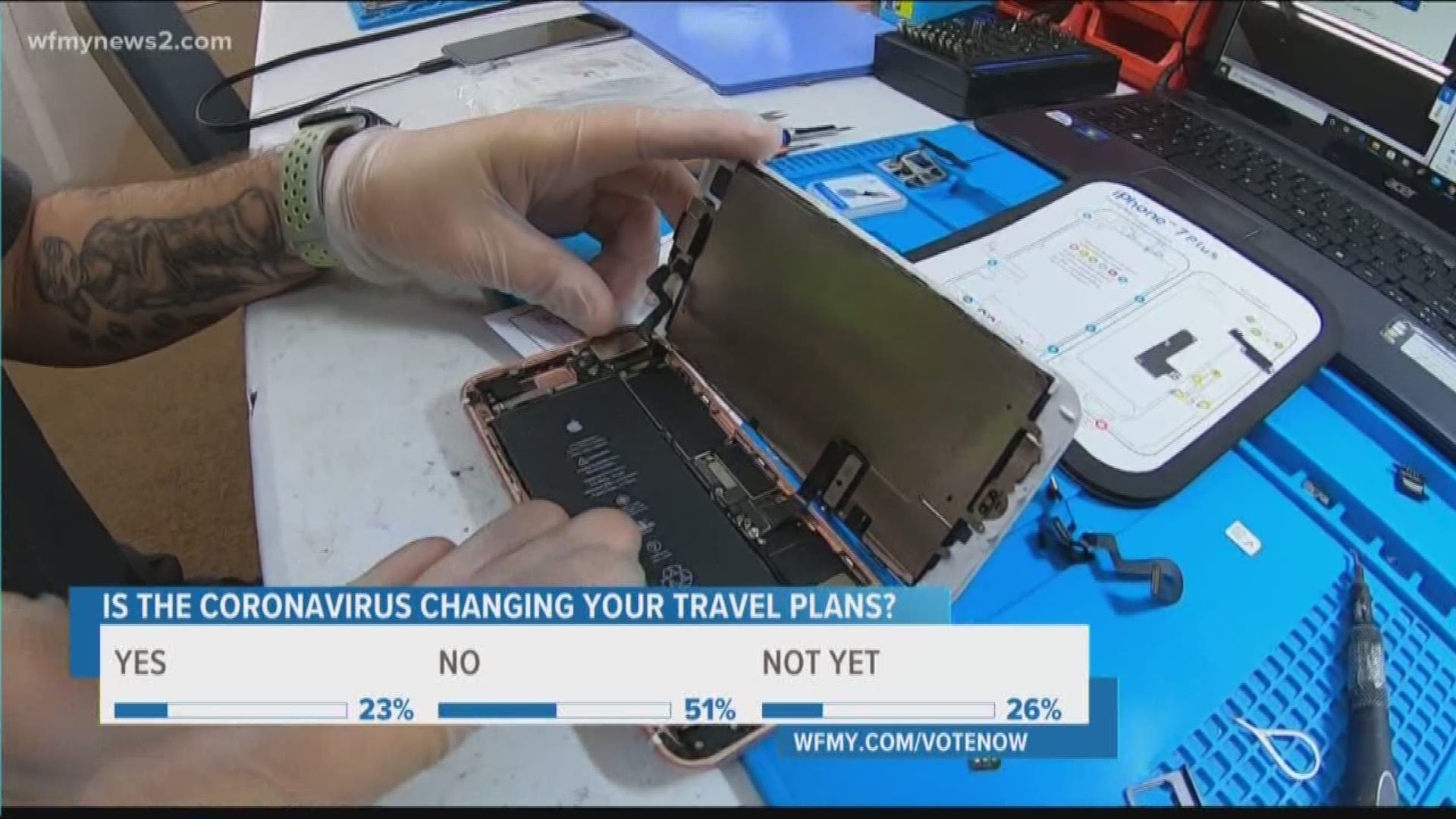WINSTON-SALEM, N.C. — Right now, scientists are working tirelessly to develop a vaccine for the new coronavirus. Some experts believe it could take a year to a year and a half to develop, test and approve for use.
Experts at Wake Forest Baptist Health told WFMY News 2 that would be record time.
"I trust Dr. Fauci when he says 12 to 18 months," said Dr. John Sanders, chief of Infectious Diseases, "Fortunately, our National Institute of Health has built a fantastic vaccine development center and I trust that they are putting together some wonderful vaccine candidates and they will push them through as fast as possible. Twelve to 18 months would be the fastest we’ve ever seen a vaccine come around by far."
At Wake Forest Baptist in Winston-Salem, right now the focus isn't on a vaccine for coronavirus - but for the flu.
Dr. Martha Alexander-Miller and her team are working on a new influenza vaccine for infants younger than 6 months old - a group that cannot currently get a flu shot.
"We see this as an opportunity to provide better protection to prevent those really young infants from getting sick because they’re more likely to be admitted to the hospital if they get influenza," she said.
But whether it's Dr. Alexander-Miller's vaccine - or another type - development takes a long time.
"We have to go through every step of designing the vaccine, putting it through the right animal models to make sure that it looks effective in an animal before we go to testing to see if it is safe in humans," Dr. Sanders said, "Then if it is safe, to see if we are getting the right antibody response and then moving to larger and larger groups to see if it’s effective."
Each step in the process - from testing on individual cells all the way to human studies - can take years.
"There is an opportunity to speed up this timeline but there is a certain amount of that time that is just absolutely going to be necessary because it has to be demonstrated that it is safe and effective before it can go into widespread use," Dr. Alexander-Miller said.
Despite advances in technology, it's difficult to nail down a timeline for any vaccine because pathogens vary so much.
"Will we see things going faster? I think it depends on what organism and what disease were looking at," said Dr. Tom Wierzba, an epidemiologist, and professor at Wake Forest School of Medicine.
Although it takes time, these scientists assert vaccines play one of the most important roles in medicine.
"Arguably, we don't have any medical development in history that has been more effective than vaccines at preserving life and keeping people healthy," Dr. Sander said.
"The most effective intervention we've ever seen in the world is vaccines," said Dr. Wierzba.
In addition to developing a coronavirus vaccine, health experts say scientists are focusing on creating a universal flu vaccine.



